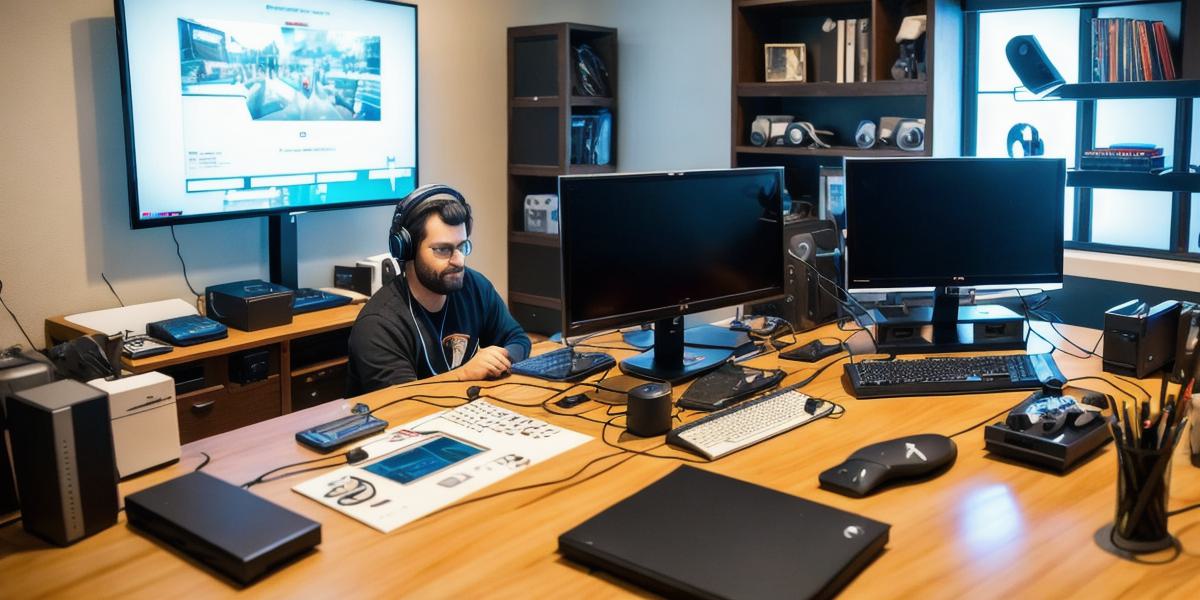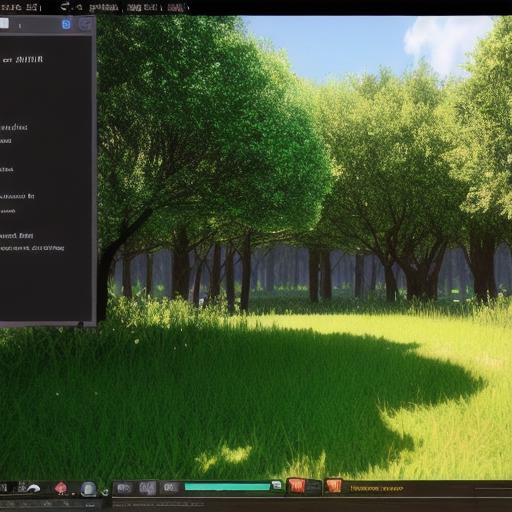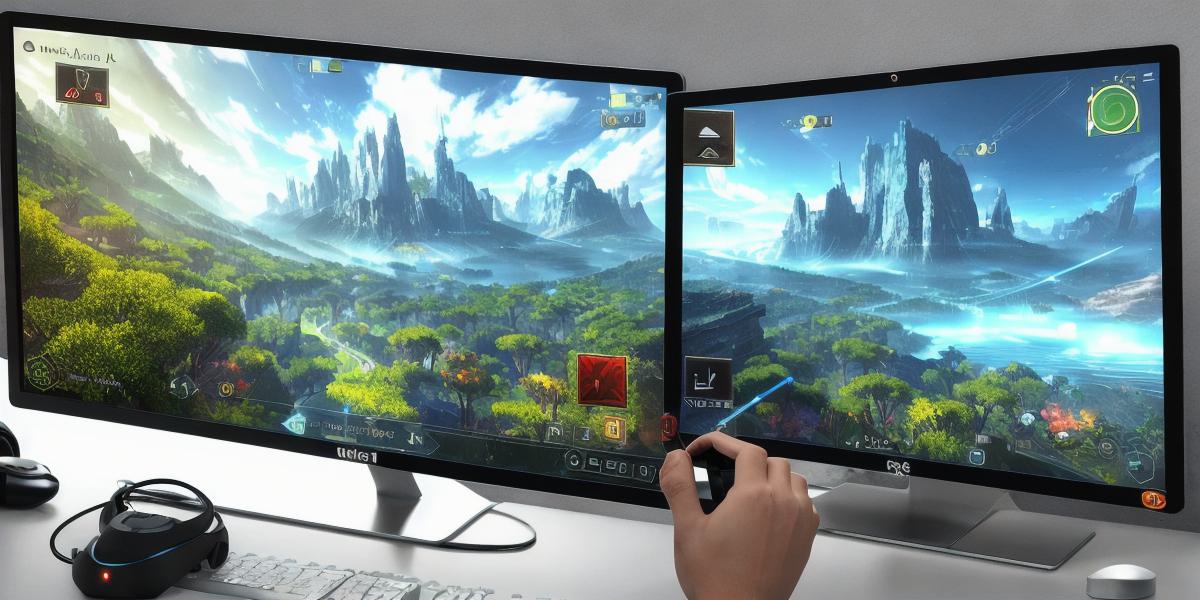The COVID-19 pandemic has forced many companies to reconsider their policies and practices, particularly when it comes to work arrangements. One of the most popular trends emerging from this crisis is remote work, also known as telecommuting. Remote work allows employees to work from home or any other location with an internet connection, which can lead to increased flexibility, reduced costs, and improved work-life balance. However, game development requires a high level of collaboration and communication among team members, making remote work seem like an impossible task. In this article, we will explore the possibility of remote game development, including its benefits and challenges.
Benefits of Remote Game Development
Remote game development offers several advantages, such as:
- Flexibility: With remote work, game developers can work from anywhere with an internet connection, which means they can set their own schedules and work at a time that suits them best. This flexibility can lead to increased productivity and job satisfaction.
- Reduced costs: Remote work eliminates the need for physical office space, equipment, and transportation, which can save money for both employers and employees. It also reduces the carbon footprint associated with commuting and travel.
- Improved work-life balance: With remote work, game developers can have more time for personal activities, such as family, hobbies, and exercise. This can lead to a better work-life balance and improved mental health.
- Increased diversity: Remote work allows companies to hire talent from different parts of the world, which can lead to increased diversity and inclusivity in the team.
- Improved collaboration: With the right tools and communication strategies, remote game development teams can collaborate effectively and efficiently, even when they are not in the same location.
Challenges of Remote Game Development
Remote game development also presents several challenges, such as:
- Communication: Game development requires constant communication among team members, including verbal, written, and visual communication. Remote work can make it more difficult to maintain this level of communication, particularly when team members are in different time zones.
- Technical issues: Remote game development may require specialized equipment and software, which can be expensive and difficult to set up and maintain. Technical issues can also lead to delays and frustration.
- Security: Remote work can increase the risk of cybersecurity threats, particularly if team members are using public Wi-Fi networks or working on sensitive data from their personal devices.
- Lack of social interaction: Working remotely can be isolating, particularly for those who enjoy socializing with their colleagues. This lack of social interaction can lead to decreased job satisfaction and mental health issues.
- Distractions: Remote work can be filled with distractions, such as family members or pets, which can affect productivity and focus.
Case Studies and Personal Experiences
Several companies have successfully implemented remote game development, including:
- Ubisoft: In 2019, Ubisoft announced that it would be allowing its employees to work remotely permanently. The company reported that remote work led to increased productivity and job satisfaction among its employees.
- Epic Games: In 2019, Epic Games launched a "Work from Home" program, which allowed its employees to work remotely for one day per week. The program was so successful that it was later extended to two days per week.
- Tencent: In 2020, Tencent, the parent company of Fortnite, announced that it would be allowing its employees to work remotely permanently due to the COVID-19 pandemic. The company reported that remote work led to increased productivity and job satisfaction among its employees.
Personal experiences can also provide insight into the challenges and benefits of remote game development. For example, a game developer who has worked remotely for several years reports that while it can be isolating at times, it also allows them to have more flexibility in their work schedule and greater control over their work environment. Another game developer who has recently transitioned to remote work reports that it has been challenging to maintain communication with their team, particularly when they are working on different parts of a project simultaneously.
Expert Opinions and Research
Several experts and studies have weighed in on the topic of remote game development:
- According to a survey by Buffer, 99% of respondents said they would like to work remotely at least some of the time for the rest of their careers. The survey also found that remote workers are more likely to be happy with their jobs and less likely to leave their companies.
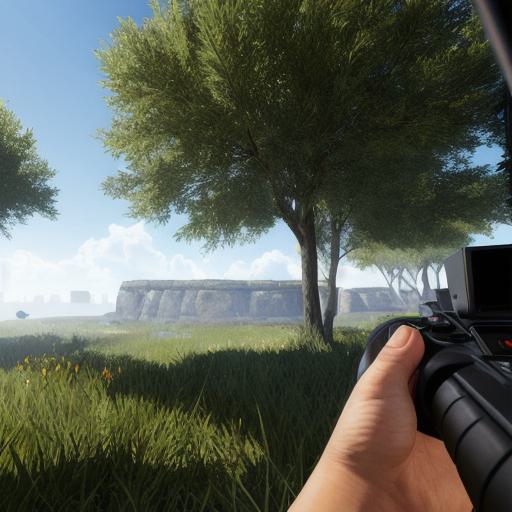
- A study by Stanford University found that remote workers were 13% more productive than their office-based counterparts, particularly when it came to tasks that required focus and concentration.
- According to a report by Accenture, remote work can lead to increased employee engagement, which is associated with higher job satisfaction, better retention rates, and improved business outcomes.
- However, a study by Gartner found that remote workers may be more prone to burnout due to the lack of social interaction and increased responsibility for managing their own work environments.
Real-life Examples to Illustrate the Points Being Made
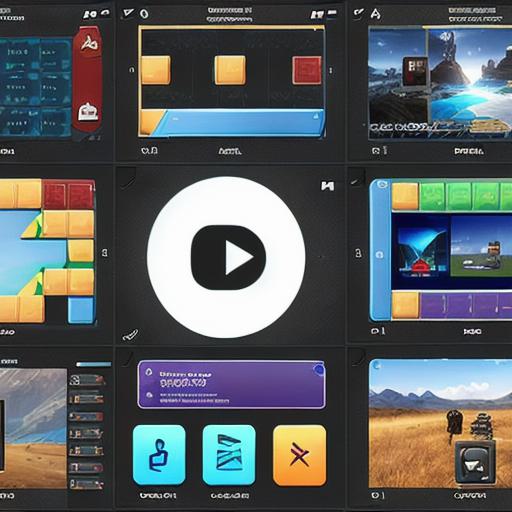
To illustrate the benefits and challenges of remote game development, let’s look at some real-life examples:
- Increased flexibility: A game developer who works remotely can set their own schedule and work from a location that suits them best, such as a coffee shop or home office. This flexibility can lead to increased productivity and job satisfaction.
- Reduced costs: Remote work eliminates the need for physical office space, equipment, and transportation, which can save money for both employers and employees. It also reduces the carbon footprint associated with commuting and travel.
- Improved work-life balance: A game developer who works remotely can have more time for personal activities, such as family, hobbies, and exercise. This can lead to a better work-life balance and improved mental health.
- Increased diversity: Remote work allows companies to hire talent from different parts of the world, which can lead to increased diversity and inclusivity in the team.
- Improved collaboration: With the right tools and communication strategies, remote game development teams can collaborate effectively and efficiently, even when they are not in the same location. For example, a team at Ubisoft uses video conferencing and project management software to communicate and coordinate their work.
- Technical issues: Remote game development may require specialized equipment and software, which can be expensive and difficult to set up and maintain. Technical issues can also lead to delays and frustration. For example, a game developer may struggle with internet connectivity or compatibility issues when working on a project that requires specialized software.
- Security: Remote work can increase the risk of cybersecurity threats, particularly if team members are using public Wi-Fi networks or working on sensitive data from their personal devices. To mitigate this risk, companies may need to invest in additional security measures, such as virtual private networks (VPNs) and multi-factor authentication.
- Lack of social interaction: Working remotely can be isolating, particularly for those who enjoy socializing with their colleagues. This lack of social interaction can lead to decreased job satisfaction and mental health issues. To address this challenge, companies may need to invest in virtual team-building activities or regular video calls with colleagues.
- Distractions: Remote work can be filled with distractions, such as family members or pets, which can affect productivity and job satisfaction. To minimize these distractions, game developers may need to create a dedicated workspace or use noise-cancelling headphones.
Summary
Remote game development has become increasingly popular in recent years, with several companies successfully implementing it and personal experiences providing valuable insights into its benefits and challenges. While remote work can offer increased flexibility, reduced costs, and improved work-life balance, it also comes with potential technical issues, security risks, and a lack of social interaction. By investing in the right tools and communication strategies, mitigating security risks, and addressing distractions, game developers and companies can successfully navigate the transition to remote work and reap its many benefits.
